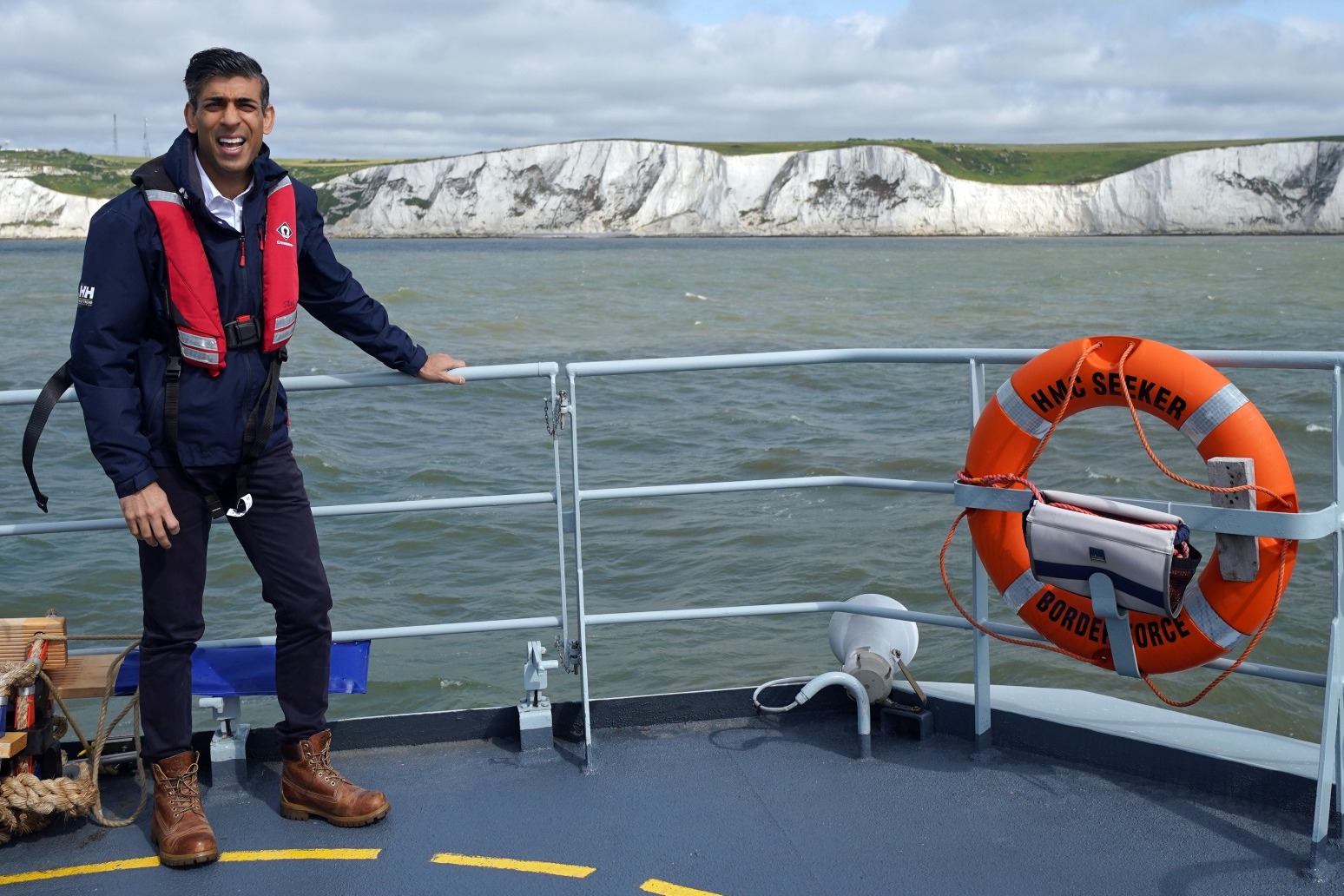
Rishi Sunak bids to see off Tory rebellion over Rwanda Bill in Commons showdown
Two Tory deputy chairmen are vowing to join the rebellion
Rishi Sunak is braced for a Commons showdown over his flagship Rwanda plan, with his authority dealt a blow by the vow of two Tory deputy chairmen to join a rebellion.
The Prime Minister is under pressure from both sides of his party over the legislation aimed at reviving the stalled plan to deport some asylum seekers to the east African nation.
He is battling to quell Tory dissent as more than 60 right-wing MPs have backed amendments seeking to beef up the Safety of Rwanda Bill, which returns to the House of Commons on Tuesday for six hours of debate and voting.
But any attempt by Mr Sunak to placate them would be opposed by more moderate Tories, who want to ensure international law is respected.
The infighting heated up on Monday evening when senior Conservatives Lee Anderson and Brendan Clarke-Smith said they would back the right-wing changes.
The amendments aim to disapply international law from the Bill and severely limit individual asylum seekers’ ability to appeal against being put on a flight to Kigali.
They were tabled by Robert Jenrick, who resigned as immigration minister over the legislation, and veteran Tory Sir Bill Cash.
In a last-ditch attempt to calm hardliners’ concerns, the Prime Minister will draft in 150 judges and free up courtrooms in order to speed up migrant appeals, The Times reported.
Mr Jenrick predicted an “electoral wipeout” for the Tories at the general election later this year if the Bill is not toughened up.
Writing in the Telegraph, he warned of “the political punishment that will be inflicted when the policy fails later in the year and the boats keep coming” and said there is no way to win back voters back “without passing a Bill that will actually work”.
If they are selected, the amendments are unlikely to pass as they will not get Labour support, but the real test will come at the third reading on Wednesday when rebels may vote against the entire Bill.
Tory deputy chairman Mr Anderson tweeted: “I have signed the Cash & Jenrick amendments. I will vote for them.”
Mr Clarke-Smith, who was only appointed to the same job seven weeks ago, wrote: “I want this legislation to be as strong as possible and therefore I will be supporting the Jenrick/Cash amendments.”
While the deputy chairmanship is not a Government role, holders would be expected to back its positions.
Mr Sunak will have to consider sacking them from their party posts.
Jane Stevenson, a parliamentary private secretary in the Department for Business and Trade, is also said to be supporting the amendments.
On the eve of the parliamentary battle, Tory political strategist Isaac Levido warned feuding MPs at the 1922 backbench committee: “Let me be clear. Divided parties fail.”
Earlier, Mr Sunak sought to woo the right as he appeared to toughen his language on so-called Rule 39 orders, injunctions from the European Court of Human Rights in Strasbourg blocking flights to Rwanda.
He said there are circumstances under which he would be prepared to ignore those orders.
But rebels dismissed the claim, with right-winger Sir John Hayes saying Mr Sunak’s verbal promise was not enough and needed to be “backed up by legal provisions”.
The Prime Minister has previously argued that moving a further “inch” on the Bill, to more explicitly breach Britain’s obligations under international law, would risk the Rwandan government quitting the deal.
If the rebels are successful, blocking Mr Sunak’s flagship Bill would trigger fresh chaos, which might make opponents toe the line to let it pass.
Meanwhile, centrist Tories warned that any caving to the right wing’s demands would “cause problems” for them.
Former justice secretary Sir Robert Buckland told the PA news agency: “The Government would be best advised not to accept any of the amendments from my colleagues on the right, because the Bill then will cause a problem for us here.”
One Nation chairman Damian Green said: “We want the Government to carry it through unamended.”
The Government’s Bill and a treaty with Rwanda are intended to make the scheme legally watertight following a Supreme Court ruling against the plan.
Mr Sunak won a key Commons vote on the legislation in December despite speculation about a major rebellion by Tory MPs then.
Even if it clears the Commons this week, it will face an uphill battle in the Lords.
The first 47 asylum seekers who were set to be on the original aborted deportation flight to Kigali more than 18 months ago have still not received decisions on their claims, with most housed in taxpayer-funded hotels, the i newspaper reported.
Published: by Radio NewsHub